Parenting a child with autism can feel like a rollercoaster ride, can’t it? It’s a journey filled with unique challenges that often leave parents feeling overwhelmed. But don’t worry, you’re not alone! In this article, we’ll explore ten essential self-care strategies designed just for you. These practical tools and insights aim to enhance your well-being while supporting your child’s growth.
So, how do you balance your own needs while advocating for your child’s success in such a complex educational and therapeutic landscape? It’s a tough question, but exploring these strategies together might just hold the key to creating a nurturing environment that benefits your entire family. Let’s dive in and discover how you can take care of yourself while being the amazing advocate your child needs!
At Rori Care, we truly understand the unique challenges that parents of children with autism face. Our personalized ABA therapy is designed just for your little one, focusing on their specific needs. Through thorough evaluations, our caring clinicians craft customized treatment plans that empower you to implement effective autism self-care strategies right at home.
This tailored approach not only helps improve your child's behavior and social skills but also creates a nurturing environment that fosters meaningful relationships. By honing in on each child's individual strengths and challenges, we ensure that families can thrive together, promoting independence and enhancing overall quality of life.
We’re here to empower your young one with the skills they need to navigate the world independently. And remember, your active involvement as a caregiver is crucial in making significant progress. Let’s explore this journey together! Your family deserves the best support, and we’re here to help you every step of the way!
Self-advocacy is such an important skill for parents of youth with autism! It helps you navigate the often tricky educational and therapeutic systems. When you understand your rights and the resources available, you can really advocate for your child’s needs.
Participating in Individualized Education Program (IEP) meetings is key. Studies show that when parents get involved, educational outcomes improve significantly. By actively communicating with teachers and seeking necessary accommodations, you can create a more supportive learning environment for your child.
Workshops and training sessions can be incredibly helpful, too! They equip you with the skills and confidence to voice your concerns and advocate for your child’s unique needs. These resources not only empower you but also promote a collaborative approach to education, ensuring that young learners receive the personalized support they need to thrive.
Let’s explore this together! We’re here to help you every step of the way!

Creating consistent daily routines is essential for individuals with autism, as it supports their autism self-care strategies. These routines provide a sense of security and help kids know what to expect throughout the day. Visual schedules are a fantastic tool in this journey! They give a clear picture of daily activities, adding structure and promoting independence.
Did you know that research shows kids with established routines have a 47% chance of maintaining strong social-emotional health as they grow older? By setting specific times for activities and including calming methods during transitions, caregivers can use autism self-care strategies to create a predictable environment that supports emotional regulation. This predictability not only eases anxiety but also helps young individuals tackle their daily tasks with more confidence.
Experts agree that autism self-care strategies, including having a structured schedule, bring order and stability, which is especially helpful in managing those anxiety-inducing moments. So, visual schedules are truly vital resources for parents looking to support their children's growth and well-being. Let’s explore this together! We’re here to help you every step of the way!
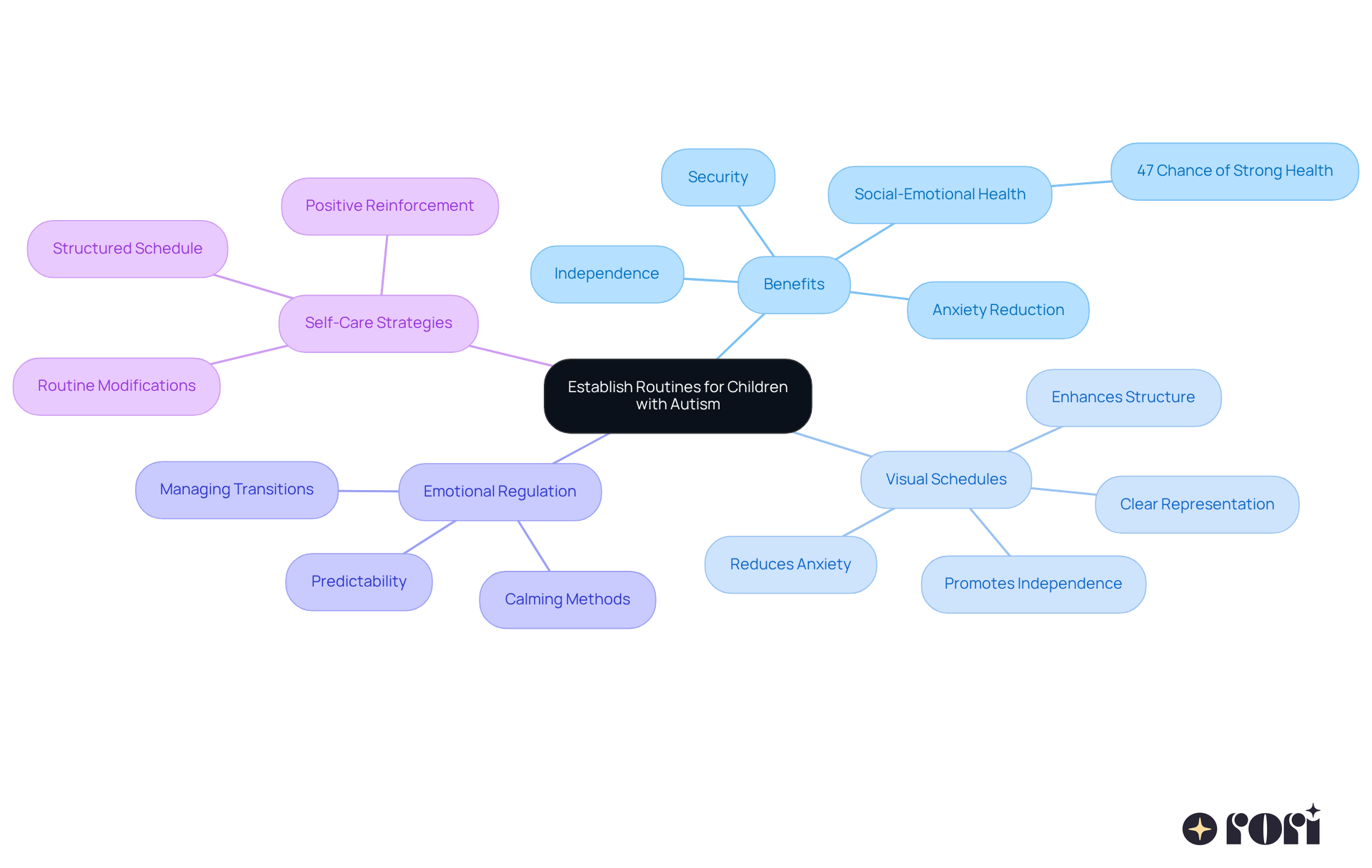
Mindfulness practices, including deep breathing exercises, meditation, and yoga, can greatly support families utilizing autism self-care strategies. These autism self-care strategies assist both caregivers and kids in managing stress and anxiety, resulting in a more peaceful home environment. When you set aside time for mindfulness, you might notice improvements in focus, a reduction in impulsivity, and a greater sense of calm. This can make tackling daily challenges feel a bit easier.
Research shows that mindfulness-based approaches, along with autism self-care strategies, can lead to significant drops in anxiety and stress for caregivers, while also helping kids with developmental disorders regulate their emotions better. By weaving these practices into your daily routine, you can boost emotional well-being and strengthen those important connections within your family.
Let’s explore this together! Imagine a moment where you and your child take a few deep breaths, feeling the tension melt away. It’s these little moments that can lead to big changes. We’re here to help you every step of the way!
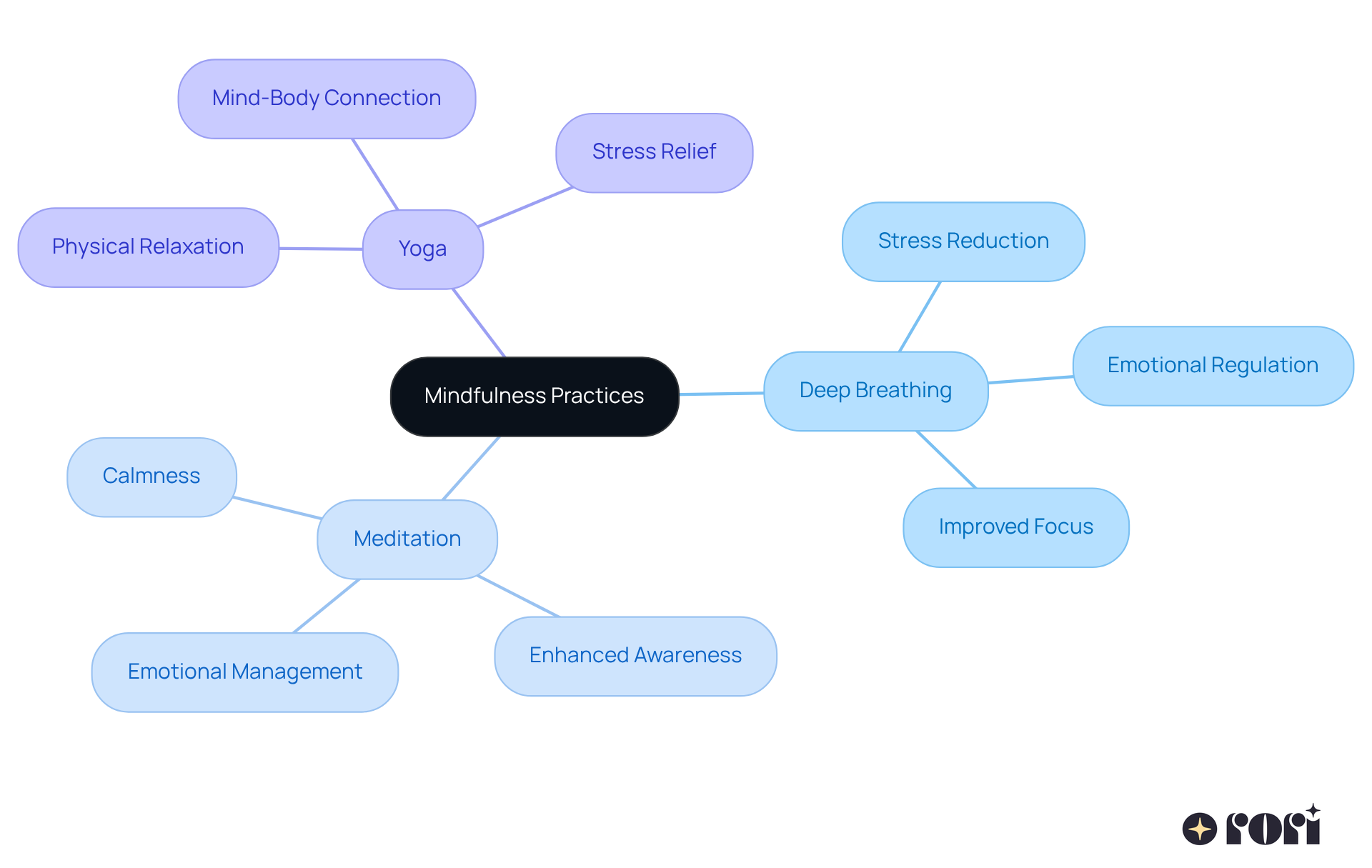
Creating a strong support network is so important for caregivers of children as they implement autism self-care strategies. Connecting with other caregivers through local support groups can really boost emotional well-being. In fact, more than two-thirds of households have found comfort and practical guidance in these communities. Being part of these groups not only helps combat feelings of isolation but also builds resilience. Caregivers can share experiences and invaluable autism self-care strategies.
Engaging with professionals, like therapists and educators, adds another layer of support for kids, ensuring families get expert guidance tailored to their unique needs. Plus, online forums and social media platforms play a crucial role, allowing parents to connect and share insights no matter where they are. These digital spaces create ongoing conversations, fostering a sense of community and mutual understanding that can make raising a child with autism feel a bit less overwhelming.
As one support group leader beautifully put it, "Building a community is about creating connections that empower families to thrive together." By actively participating in these networks, caregivers can create a nurturing atmosphere that supports both their well-being and that of their children. Let’s explore this together!
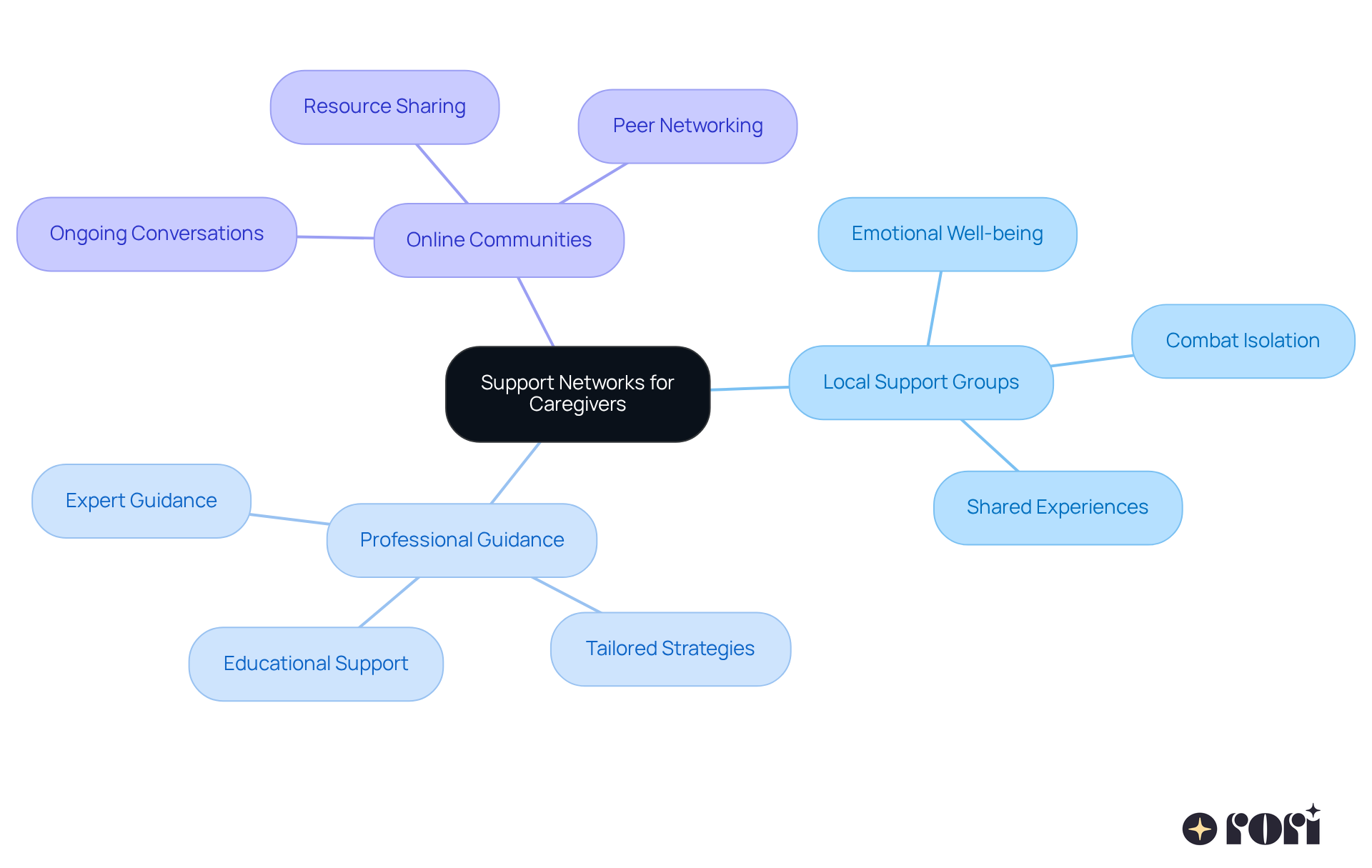
Taking care of yourself is so important for caregivers of individuals with autism, especially when utilizing autism self-care strategies. It really impacts how well you can support those you love. Incorporating regular exercise, a balanced diet, and good sleep are vital autism self-care strategies that can work wonders in reducing stress. 🌟
You know, studies show that caregivers who practice mindfulness and self-care often feel less anxious and depressed. This not only helps them but also enhances their emotional connection with their kids. Imagine carving out time for hobbies or just relaxing a bit - this not only recharges your batteries but also creates a happier home environment.
By prioritizing your own well-being and incorporating autism self-care strategies, you’re setting the stage for a supportive atmosphere that can lead to better outcomes for your children with developmental disorders. Let’s explore this together! Remember, you’re not alone in this journey.
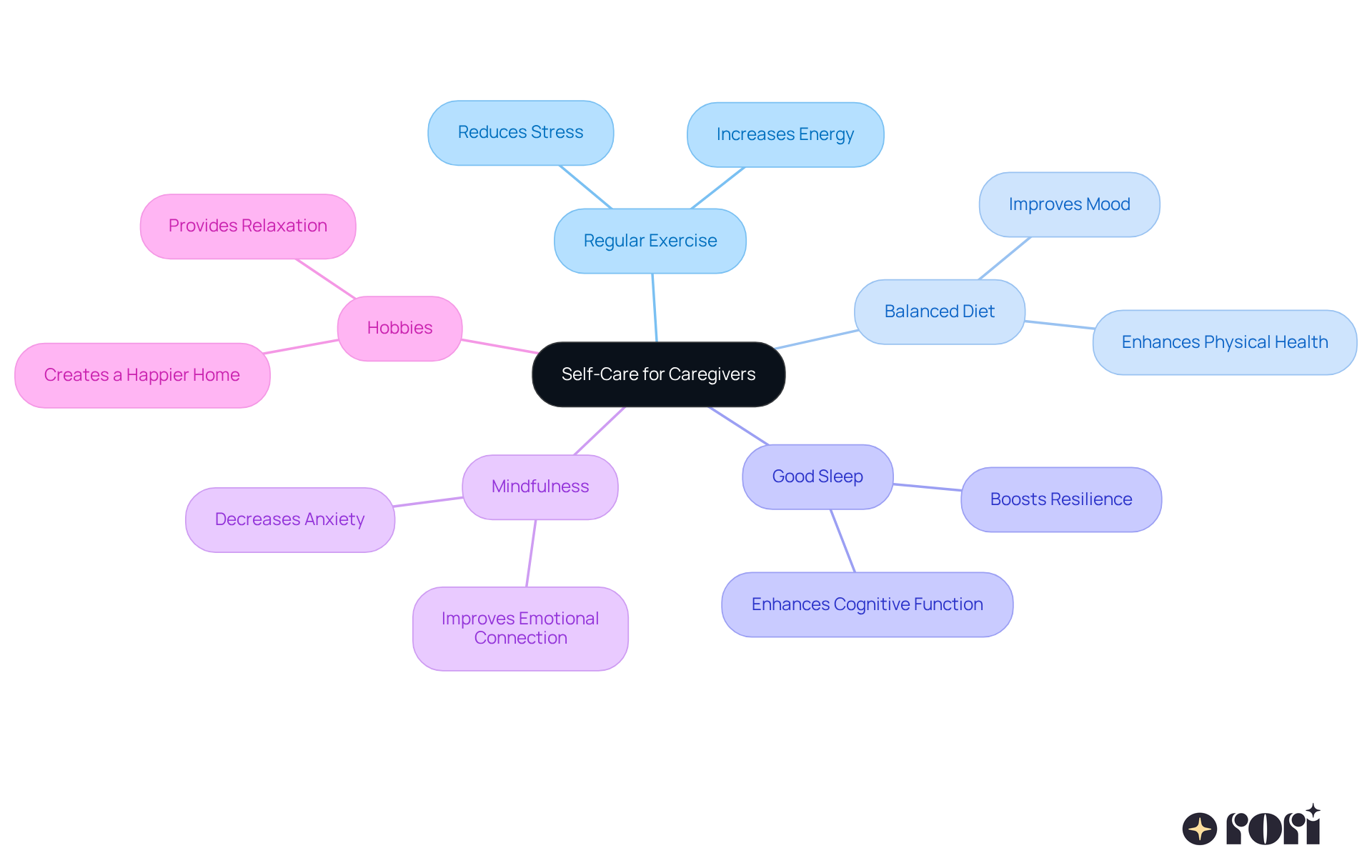
Engaging in workshops focused on autism advocacy is a fantastic way for caregivers to gain the knowledge and skills they need to support their children effectively. These workshops dive into important topics like:
By learning from experts and connecting with other parents, you can boost your advocacy efforts and better meet your child’s needs.
Plus, being actively involved and aligning with therapeutic strategies is key to this journey. When caregivers understand ABA principles and strategies, they can make informed choices that positively influence their child’s progress. This active participation not only leads to better behavioral outcomes but also empowers you as a caregiver, boosting your confidence and easing stress. It creates a more supportive family dynamic, which is so important!
To really get the most out of these workshops, parents are encouraged to engage with the material and apply what they learn in their daily lives. Let’s explore this together! Your involvement can make a world of difference!
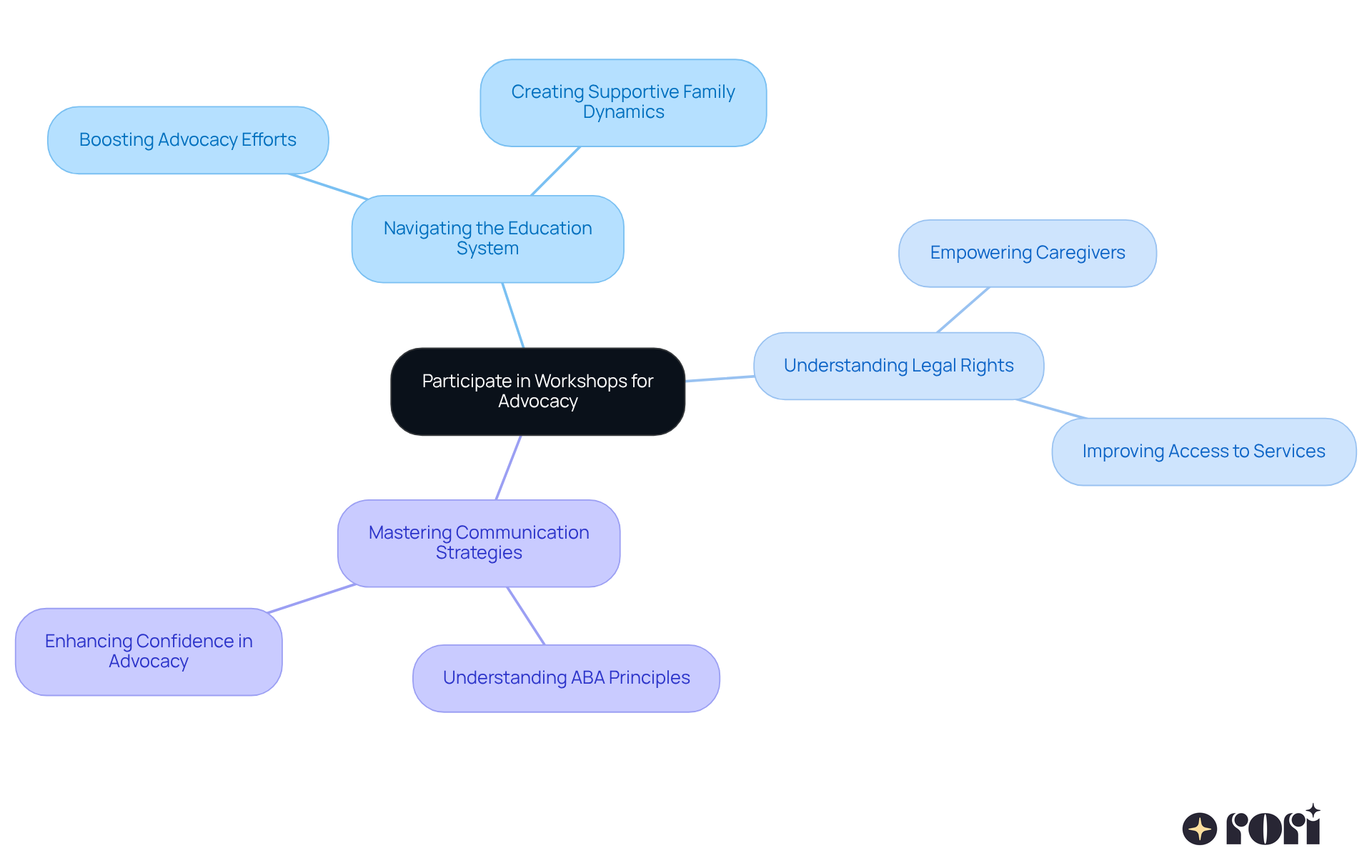
Celebrating small victories is so important when raising a youth with autism, particularly when utilizing autism self-care strategies in conjunction with Applied Behavior Analysis (ABA) strategies. ABA is all about personalizing therapy to fit each individual’s unique needs, tapping into the science of learning and behavior. When we recognize accomplishments - like mastering a new skill or handling a tough situation - it can really boost a young person’s confidence and motivation.
Parents can create a culture of celebration at home! Simple things like verbal praise, tangible rewards, or fun activities can reinforce those positive behaviors. For example, you might:
This not only supports the individual’s growth but also aligns beautifully with the principles of early intensive behavioral intervention (EIBI), which is key for enhancing learning, verbal, and social skills, as well as implementing effective autism self-care strategies.
Let’s explore this together! By celebrating these moments, we’re not just marking progress; we’re building a supportive environment that encourages our kids to thrive.
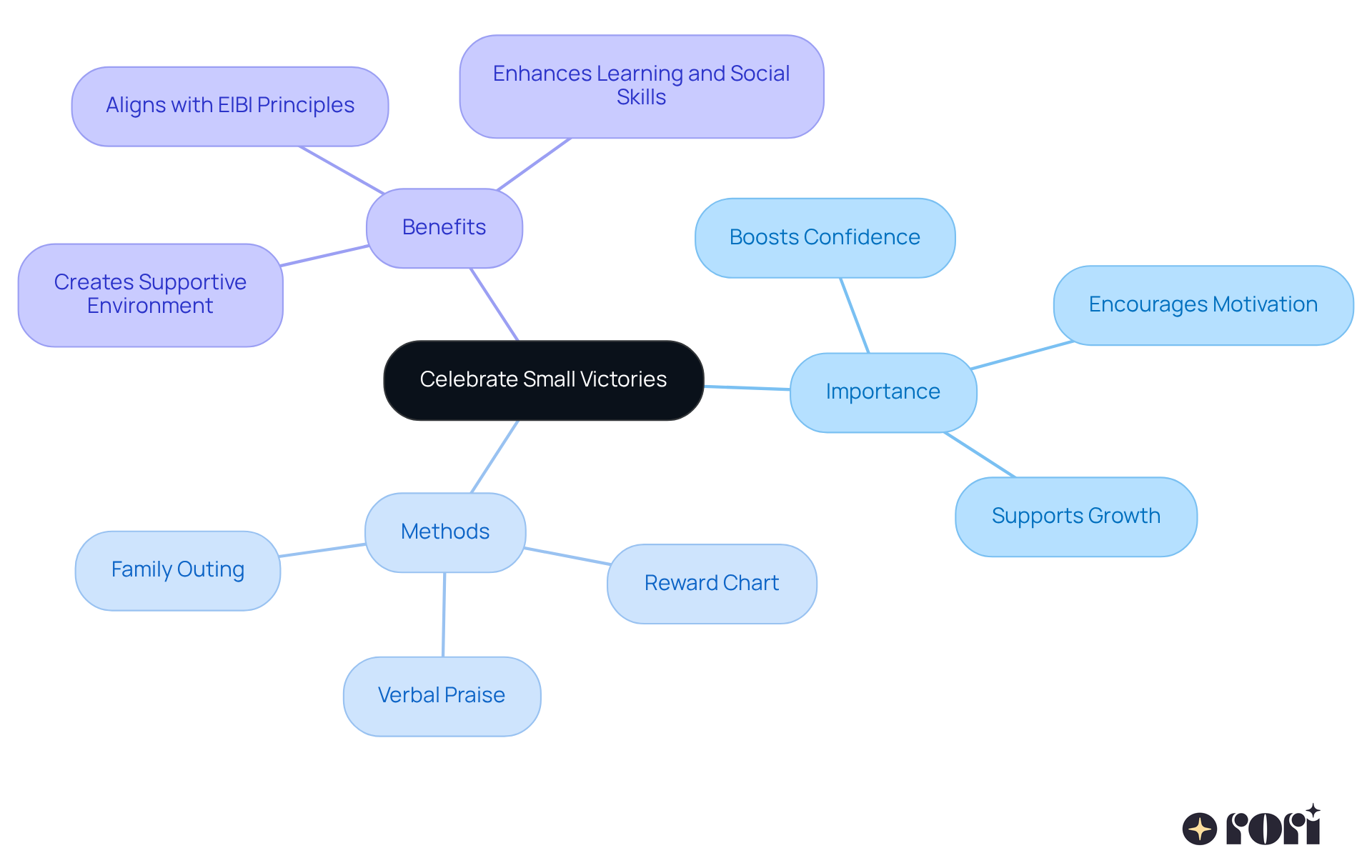
Effective communication with educators is so important for parents of kids with autism. Regular chats about a student’s progress, challenges, and needs help ensure that the right support is in place in the classroom. At Rori Care, our clinical leadership team is all about promoting neurodiversity and youth success. We’re dedicated to empowering families through education and support!
Joining parent-teacher meetings and engaging in Individualized Education Program (IEP) discussions is crucial, especially for individuals with autism. Research shows that when parents get involved, it really boosts students’ academic performance and emotional well-being. By sharing insights about their child’s strengths and areas for improvement, parents help create a collaborative approach that fosters a supportive educational atmosphere tailored to each child’s unique needs.
This partnership not only enhances educational outcomes but also empowers parents to be advocates for their children, ensuring their voices are heard in the decision-making process. Plus, effective collaboration can ease stress for both parents and teachers. It really highlights how proactive engagement in the educational journey makes a difference. Let’s explore this together!
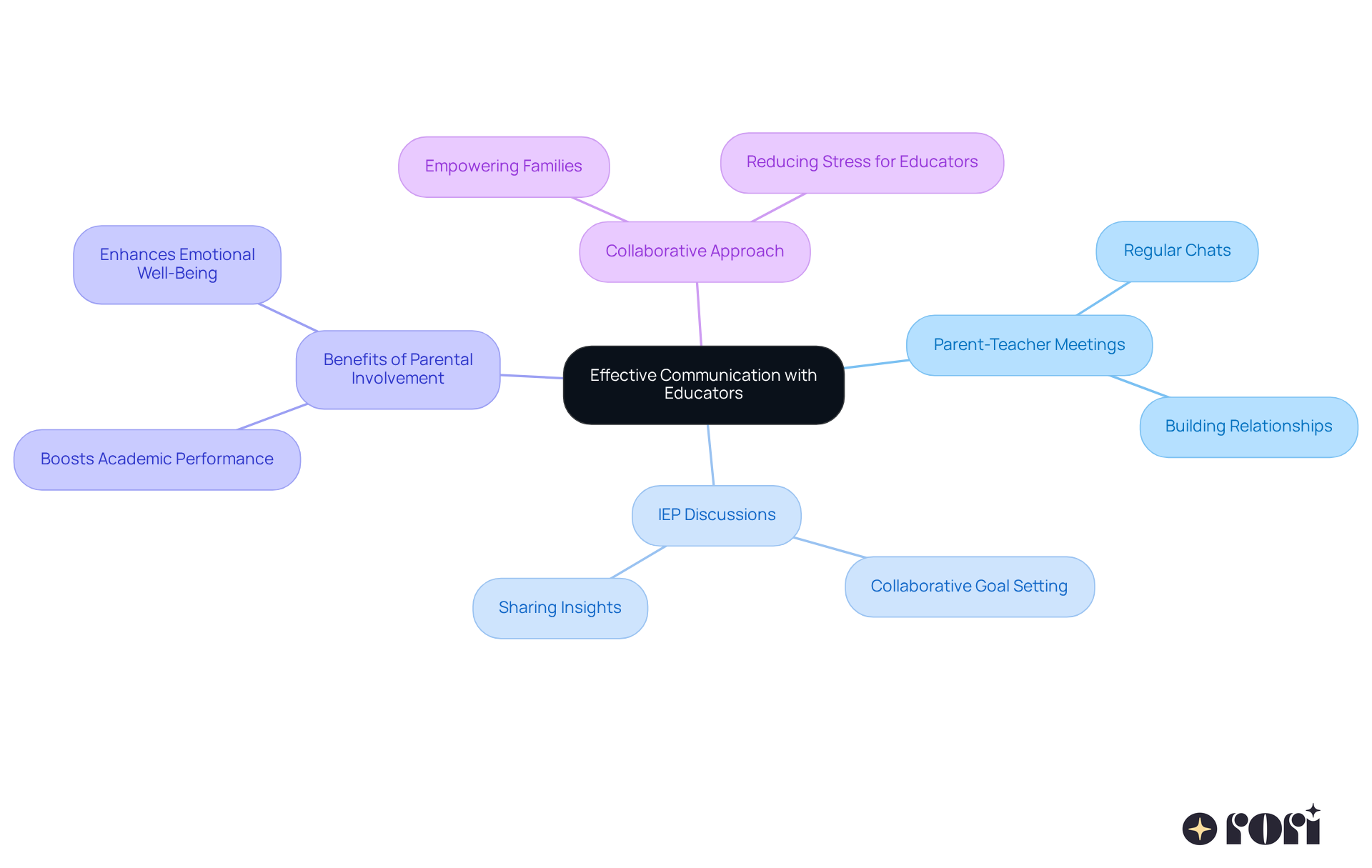
Navigating autism can be quite a journey for families, and harnessing technology can make a world of difference in self-care management. There are so many apps and tools out there designed to help track behaviors, manage schedules, and enhance communication. For example, visual schedule apps like Choiceworks Calendar can really help kids grasp their daily routines. This not only eases transition anxiety but also gives them a comforting sense of security.
Behavior tracking apps are another great resource, allowing parents to keep an eye on their child’s progress and pinpoint areas that might need a little extra attention. Research shows that using these tools consistently can lead to better behavioral outcomes, as they help everyone involved understand and engage more effectively in daily activities.
By incorporating autism self-care strategies into their everyday routines, families can streamline their efforts and ultimately boost the quality of care and support for their children. Let’s explore this together! We’re here to help you every step of the way!

Empowering parents of children with autism is all about embracing a multifaceted approach that focuses on effective self-care strategies. By honing in on personalized support, self-advocacy, and establishing routines, parents can create nurturing environments that truly foster growth and independence for their children. These strategies not only enhance the quality of life for kids with autism but also uplift the entire family’s well-being.
As we wrap up, some key insights stand out:
Engaging in workshops and celebrating those small victories can further strengthen parents' advocacy efforts, ensuring they feel equipped to navigate the complexities of educational and therapeutic systems. These elements are crucial for creating a collaborative and supportive atmosphere that benefits both parents and children.
Ultimately, the journey of raising a child with autism is enriched by the active involvement of parents in their child's development and well-being. By implementing these essential self-care strategies, parents not only advocate for their children's needs but also cultivate a positive environment that encourages growth and resilience. Embracing these practices can lead to transformative outcomes, making the path forward not just manageable but also rewarding. Let’s explore this together! We're here to help you every step of the way!
What is Rori Care's approach to ABA therapy for children with autism?
Rori Care offers personalized ABA therapy tailored to each child's specific needs. Clinicians conduct thorough evaluations to create customized treatment plans that empower families to implement effective autism self-care strategies at home.
How does Rori Care's therapy benefit children with autism?
The therapy helps improve children's behavior and social skills while fostering a nurturing environment that promotes meaningful relationships. It focuses on each child's individual strengths and challenges, aiming to enhance their overall quality of life and promote independence.
Why is caregiver involvement important in the therapy process?
Active involvement from caregivers is crucial for making significant progress in therapy. Caregivers play a key role in supporting their child's development and implementing the strategies learned during therapy.
What is the significance of self-advocacy for parents of children with autism?
Self-advocacy helps parents navigate educational and therapeutic systems effectively. Understanding their rights and available resources enables them to advocate for their child's needs, leading to better educational outcomes.
How can parents participate in their child's education?
Parents can participate by attending Individualized Education Program (IEP) meetings and actively communicating with teachers to seek necessary accommodations, creating a more supportive learning environment for their child.
What resources are available to help parents advocate for their children?
Workshops and training sessions are available to equip parents with the skills and confidence needed to voice their concerns and advocate for their child's unique needs.
Why are consistent daily routines important for children with autism?
Consistent daily routines provide a sense of security and predictability, which supports autism self-care strategies. They help children know what to expect throughout the day, easing anxiety and promoting emotional regulation.
What tools can help establish routines for children with autism?
Visual schedules are an effective tool for creating predictable environments. They give a clear picture of daily activities, add structure, and promote independence, which is vital for children's growth and well-being.
What impact do established routines have on children's social-emotional health?
Research indicates that children with established routines have a 47% chance of maintaining strong social-emotional health as they grow older, highlighting the importance of structured schedules in their development.